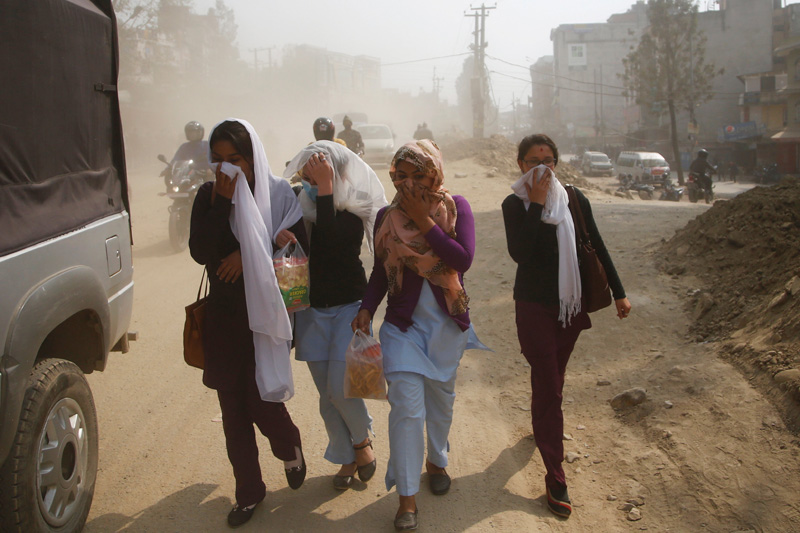No effort being made to control air pollution
Kathmandu, November 19
Although air quality monitoring began in the country 15 years ago, the government has so far made no effort to control air pollution.
According to the Department of Environment, analysers are needed for accurate and comparative analysis of air quality data. However, neither the Ministry of Population and Environment nor the department has any post for statistical analysers.
Senior Divisional Chemist at the Department of Environment Shankar Prasad Paudel admitted that after setting up air quality monitoring stations in Kathmandu Valley, the government has only been collecting air quality data and no efforts have been made to control air pollution.
The government had resumed air quality monitoring in the Kathmandu Valley by installing a station at Ratnapark in August last year, seven years after previous monitoring stations were closed. Though air quality monitoring in Nepal began in 2002, no stations were operational since 2009.
The Danish government had installed seven air quality stations in the Valley in 2002. Five of these stations were set up in Machchegaun, Kirtipur, Patan, Putalisadak, and Bhaktapur each, and two in Thamel.
According to the Department of Environment, the stations have been sending data regularly to the central sever since that began operation.
The stations measured dust particles, especially particulate matter (PM 10) and PM 2.5 in the air, levels of carbon monoxide, sulfur dioxide, nitrogen oxide and ozone in the atmosphere.
After the stations were handed over to the government in 2008, the government entrusted Environment and Public Health Organisation with operating them. However, a misunderstanding between the government and ENPHO led to closure of the stations in 2009.
According to the department, six additional stations will be installed in Khumaltar, Machchhegaun, Teku, Bhaktapur, Chandragiri and Kapan or Maharajgunj.
The department is in the process of installing 56 stations throughout the country with the help of International Centre for Integrated Mountain Development and Kathmandu Sustainable Urban Transport Project.
According to the Environment Performance Index 2016 that quantifies the environmental performance of state’s policies, Nepal ranks 149 among 180 countries, and 177 in air quality.
While cities around the world, including neighboring countries, have taken stringent actions to improve air quality, Nepal has yet to do so.






